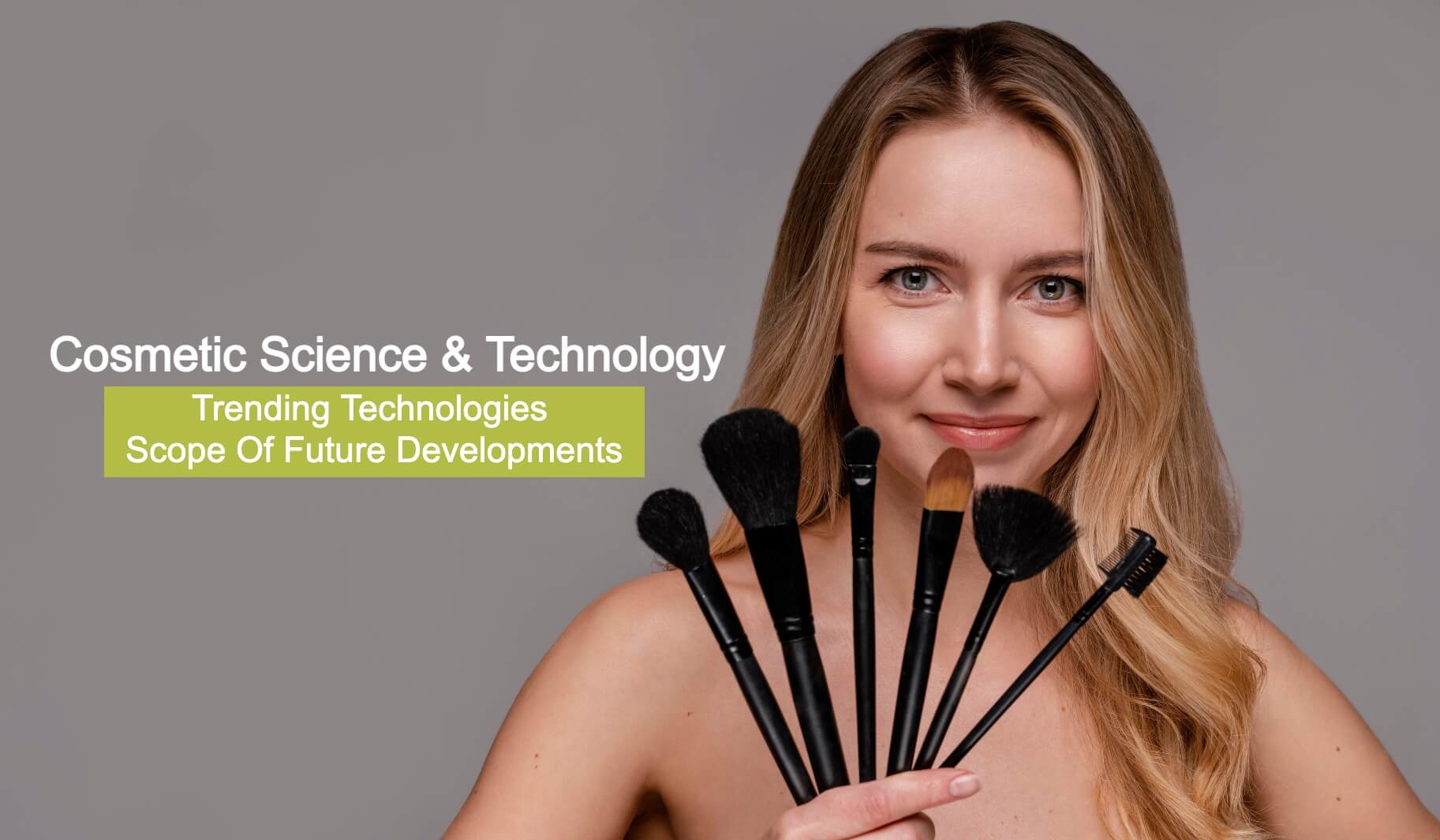Cosmetic Sciences; Trending Technologies And Scope For Future Developments
The beauty & cosmetic industry is a multi-billion-dollar industry that is known to stay strong even in times of economic strife. A surge in new technology is transforming the personal care industry, allowing brands to stand out in a crowded marketplace with unique products that fulfil the changing needs of the consumer. Beauty brands are using everything from artificial intelligence (AI) to augmented reality (AR) to keep their customers engaged in a fiercely competitive market.
Also, with the development of the skin biology, biological gene, skin microbiome and nanotechnology, there is much room for ingredient innovation in the field of cosmetics. Breakthroughs on the ingredient level is difficult, but the development of new material could result in the innovation for a whole category. These days big beauty brands are increasing investment and are adopting technologies, such as Artificial Intelligence (AI) and Augmented Reality (AR), to deliver a high-quality, personalised experience.
Let's discuss some of the developments in this article...
Augmented Reality (AR)
It has become a mainstay try-before-buy tool, both online and in-store. In-app AR ‘mirrors’ can simulate cosmetics on a user’s face photo-realistically in real-time, at home. In-store, kiosks are equipped with touchscreen monitors so customers can try products without the lengthy process of applying several variants with a store assistant.
The technology has become increasingly more realistic, meaning users can easily try combinations of eye shadow, mascara, foundation, blush, and lipstick, and switch between different colours and textures in seconds. And it’s not limited to the face but there are several companies that let consumers virtually test nail polish shades.
Artificial Intelligence (AI) for Ingredient Discovery
Technology is enabling the reinvention of traditional ingredients in numerous ways; from refined processing methods to impart added benefits, to silico modeling that takes some guesswork out of the discovery process. Scientists have a pretty good idea of how different chemicals in the body will react and work together. But with medications, we’re dealing with human bodies where the stakes are a lot higher, and so are the costs associated with experimenting. A scientist working in Drug Discovery might conduct hundreds of planned and well-calculated experiments over years of work.
One of the most challenging and time-consuming parts of Drug Discovery is, well, the actual discovery. Getting the right chemical compounds in exactly the right proportions is a big challenge. Using AI to go through combinations of drugs and learn about them. AI can conduct the exact same experiments that a Scientist normally would, just in a computer simulation. This way, it can go through many experiments in a very short period of time. This is a huge saving on Scientists, and society’s, time, money, and health.
3D Printing
The technology is making a significant impact on several industries, including the cosmetics industry. This technology is constantly evolving and brands are utilising it in new ways to offer customers a truly innovative product with a personalised experience. The world’s first 3D make-up printer is set to be released in Autumn 2020. Experts agree that 3D printing can have a major impact on the cosmetic industry. Let's see some application examples;
-> Customized 3D Makeup
-> 3D Printed Mascara Brush
-> Advanced Skincare Routine
-> The Creation of Human Skin
Wearables for Non-invasive Skin Research
There is increasing interest in the development of non-invasive tools for investigating the properties of skin, as they promise non-destructive sampling, reduced ethical concerns and comparability of results in vivo and in vitro. Wearable devices have recently received considerable interest due to their great promise for a plethora of applications. Increased research efforts are oriented towards a non-invasive monitoring of human health as well as activity parameters. A wide range of wearable sensors are being developed for real-time non-invasive monitoring.
Smart Skincare Tools
These products scan your skin to give you details like your skin age, main concerns, hydration level, and pigmentation. They’re commonly used as part of in-store experiences. Face mapping service offered by Dermalogica, Olay Skin Analysis analyzes your skin, calculates your skin age, then suggests a regimen plan for users.
Biotech Ingredients
These substances, which are grown in factories, carry the benefits of purely natural ingredients but are more sustainable and cleaner since they don’t use the earth’s resources, and aren’t harvested using crude oils. They are often used in vegan cosmetics, which call for ingredients that aren’t connected to animals.
Makeup Printer
This technology was unveiled by Proctor and Gamble at CES 2019 in the form of Opte Wand. To avoid clogging up the pores, it detects the part of the skin which has an uneven complexion and only applies makeup there. Rather than heavy-handed foundation applied all over the face, users achieve a natural, more airbrushed finish.
Major Players In This Trending Cosmetic Industry
- L'Oreal
- Shiseido
- Estee Lauder
- Procter & Gamble
- Coty Inc.
- Unilever
- Beiersdorf
- Johnson & Johnson
- L'Occitane and many more…
Conclusions
The cosmetics and personal care industry continues to turn to technology, as brands look to deliver a hyper-personalised experience for consumers. While the future of beauty tech is difficult to predict, the shift in digital beauty behaviours has been accelerated by the COVID-19 pandemic. Increases in the collaboration between beauty brands and technology companies, the growing use of AI, AR, 3D printing data will continue to transform the consumer experience, creating new opportunities for greater personalisation and tailor-made formulations.
Checkout this experts recommended training: High-Performance Natural Cosmetics: Ingredient Selection, Formulation, Evaluation, Claims and Regulations

